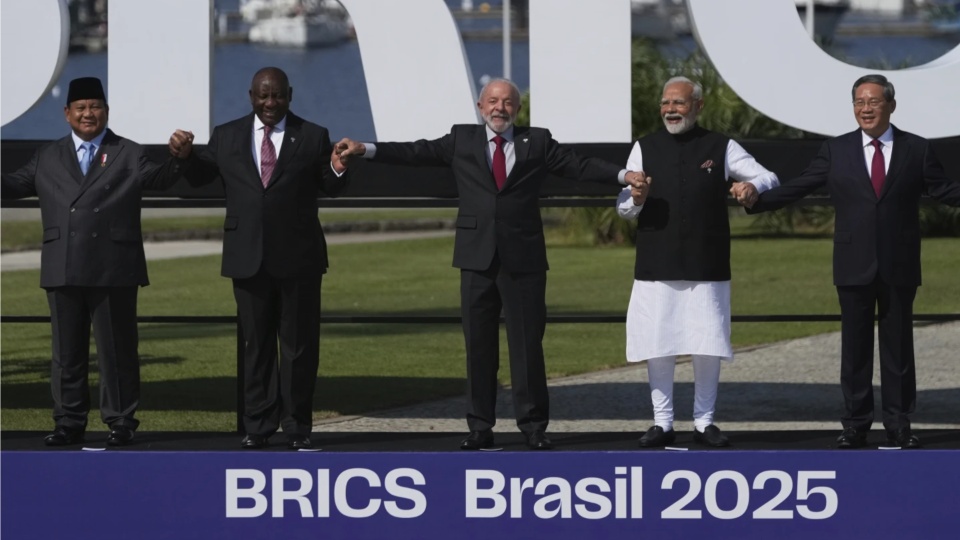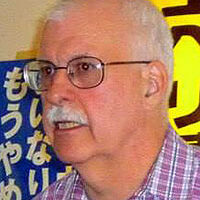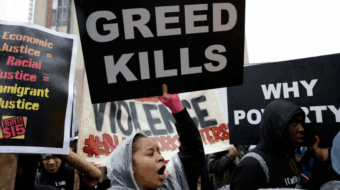
“BRICS is the heir to the Non-Aligned Movement,” declared Brazilian President Luiz Inácio Lula da Silva at the economic alliance’s 17th annual summit, held July 6-7 in Rio de Janeiro.
“With multilateralism under attack, our autonomy is in check once again,” Lula said. “If international governance does not reflect the new multipolar reality of the 21st century, it is up to BRICS to help bring it up to date.”
Lula called for international relations based on respect, independence, and equality at the meeting of the economic bloc established by Brazil, Russia, India, and China in 2009. South Africa later joined, as did Egypt, Ethiopia, Indonesia, Iran and the United Arab Emirates. Saudi Arabia has applied for membership, and several other nations participate as “partners.”
This year’s summit met under the theme “Strengthening Global South Cooperation for More Inclusive and Sustainable Governance.” Present were the presidents of India, South Africa, Cuba, Bolivia, Uruguay, and Indonesia, the newest member state. Also present were various foreign and prime ministers from different countries.
Russia’s Vladimir Putin attended by videoconference, and China sent Premier Li Qiang. Some in the Western media speculated that President Xi Jinping’s absence indicated China was downgrading its commitment; the extensive positive coverage by the Chinese press and Li’s active schedule demonstrated otherwise.
The BRICS group is now equal or larger than the G7 in GDP and much bigger in population. The first, second, fourth, sixth, and seventh largest population countries are all part of BRICS; this brings both huge problems and vast development possibilities.
Also in attendance was United Nations Secretary General António Guterres, who spoke for urgent reform of global institutions to be more inclusive and democratic. Also attending was the director general of the World Health Organization, Dr. Tedros Adhanom Ghebreyesus, who helped launch the BRICS Partnership for the Elimination of Socially Determined Diseases.
The Rio summit was the first attended by the new group of partner countries, admitted starting in January. The partners include the socialist countries Cuba and Vietnam, as well as Belarus, Bolivia, Kazakhstan, Thailand, Uganda, Malaysia, Nigeria, and Uzbekistan. The partners participate in most BRICS activities but don’t have a vote.
The partner category was created to manage the rapid expansion of the group, as there are around 30 other countries interested in participating. Southeast Asia is now well represented. It is expected that many of the partners will eventually become full members.
Unilateral U.S. tariffs, protectionism, and support for Israel’s policy of destruction in Palestine are very unpopular in the Global South and contribute to the growing appeal and expansion of BRICS.
Trump recently threatened those “aligned” with BRICS’ supposed “anti-American” activities with additional tariffs. He announced just this week that host country Brazil will be hit with huge 50% tariffs. Actually, BRICS is an independent forum not directed at anyone; any country embracing multilateralism and multipolarity could, in principle, join.
Staking out positions
With rising tensions and wars in the international sphere, BRICS organized a plenary entitled “Peace and Security and Reform of Global Governance.” Chinese Premier Li Qiang addressed the plenary and called on BRICS to work for world peace and tranquility and promote the negotiated settlement of disputes in the new multipolar world.
Global governance, Li said, should be based on “extensive consultation, joint contribution, and shared benefits.” He urged a reform of global institutions, like the U.N., to enable them to more effectively respond to crises.
The summit issued a statement condemning the bombing of Iran and called for an unconditional ceasefire in Palestine, as well as the full withdrawal of all Israeli troops from the occupied territories and the release of all hostages. The statement expressed concern over increased world military spending and also called for negotiations and peace in Ukraine and Sudan, and a nuclear weapons-free Middle East.
Reform of global governance was an important topic, as many of the U.S. and Western-dominated institutions set up at the end of World War II no longer fit changed circumstances. BRICS repeatedly emphasized the reality of “a new multipolar world based on multilateralism and equal rights for all countries.”
BRICS strongly supports international law and the founding, basic democratic principles of the United Nations, but reform is needed. In particular, the U.N. Security Council must more broadly represent the Global South, such as by adding India, Brazil, and an African country as permanent members.
BRICS also renewed its advocacy for changes at the International Monetary Fund (IMF) to give developing countries more voting power and end the tradition of European leadership. The multilateral trading system, with the WTO at its center, must be strengthened, attendees declared. Unilateral tariffs contradict WTO rules and endanger world trade and supply chains, they emphasized. BRICS also restated its opposition unilateral, illegal sanctions. While not naming the U.S. in its discussion of tariffs or sanctions, the implication was clear.
Presenting alternatives
BRICS was officially founded over a quarter-century ago to foster dialogue and cooperation among emerging economies in the face of the Western capitalist economic crisis. The establishment of financial and trading alternatives free from U.S. control and dominance remains a priority.
A proposal for a BRICS currency is still under study, however, direct trade with settlement in national currencies is increasing. Russian President Putin said that 90% of Russia’s trade with BRICS countries is now conducted in rubles or other local currencies.
China, meanwhile, has introduced a new CIPS system (Cross-border Interbank Payment System), which is fast, up-to-date, efficient, and inexpensive. CIPS is now being used in 1,300 financial institutions in 110 countries, especially in the countries of ASEAN (Association of South East Asian Nations) and GCC (Gulf Coordination Council). Use of the Western-dominated SWIFT cross-border settlement mechanism is declining and now covers less than 50% of international trade.
BRICS’ New Development Bank continues to grow, the summit heard, with some $40 billion now invested in projects in developing countries, such as transportation, infrastructure, and green energy. NDB President Dilma Rousseff recently announced that Colombia, Indonesia, and Uzbekistan have joined the bank. It is setting up the BRICS Multilateral Guarantee as an insurance program to mitigate perceived risk and expand investment from private and public sources. Together with that service, the BRICS Strategic Reserve Fund offers liquidity to indebted countries in times of crisis, providing an alternative to IMF bailouts, which come with strings attached.
BRICS also issued its first joint statement on the environment and climate finance at this year’s summit, recognizing the urgency of climate change and calling on the wealthier, developed countries to fulfill their commitments and contribute their share to the fund to help developing countries with green energy industrialization and global warming mitigation costs.
The group reiterated its commitment to the Paris Climate Accord of 2015 and support for Brazil’s hosting of COP28 later in 2025 and India’s hosting of COP30 in 2028. (COP stands for the Conference of Parties, the U.N.-sponsored conference attended by all countries to advance global climate action and justice.)
China and the United Arab Emirates expressed interest in supporting a Brazilian-proposed “Tropical Forests Forever” facility. The environmental ministers of the member states issued a joint statement covering biodiversity loss, desertification, and land degradation. Chinese and Latin American academics organized a conference for exchange on sustainability research, and an international green futures symposium was held.
The BRICS format facilitates people from different countries having dialogue and making educational presentations on current issues and thinking up new projects, with all of these as examples.
Artificial intelligence was another major topic at the conference. BRICS members said they recognize that AI will propel major technological change, but said they are concerned that many countries of the Global South will be left out as the AI revolution becomes ever more concentrated in the wealthy countries of the Global North.
Some BRICS countries, however, are more advanced in high tech, and there are opportunities for education, training, and sharing experiences. China, for instance, has set up a new “BRICS Research Center for New Quality Productive Forces” and offers scholarships to students from developing countries. There is a need for U.N. or multilateral governance of global AI, however, the member states said.
The global shift
In conclusion, the shift of global production forces from the West / Global North to the Global South is bringing about the creation of new, more representative institutions opposing U.S. hegemony. With more economic muscle, the Bandung agenda of the old Non-Aligned Movement can finally be realized—the point Lula was making in his remarks.
A number of new multilateral organizations have been established that, like BRICS, contribute to this development. For example, Venezuela and Cuba initiated ALBA (the Bolivarian Alliance for the Peoples of Our America) in 2004, while the African Union has recently been admitted to join the G20 group of major world economies.
The BRICS final declaration emphasized such developments and pointed to “the importance of the Global South as an engine of positive change…promoting a more just, sustainable, inclusive, representative, and stable international order based on international law.”
The energy of BRICS is palpable, as it has expanded beyond its original economic goals to include programs of scientific and educational exchange. It serves as a platform for countries of the Global South to dialogue and create new cooperative projects.
U.S. imperialism is declining and now waging an especially vicious attack at home and around the world; the former colonies and semi-colonies of the developing world have shared experiences as victims of colonialism and imperialism. The common desire for more equitable global governance is agreed on by countries like India and China, which have very different social systems. They agree on opposing hegemony.
BRICS is not a socialist organization, and it does not oppose capitalism. It does not have a military wing to defend its members, and imperialism and corruption continue to have major negative impacts in parts of the Global South. But the emerging forces for independence, equality, and development are stronger and growing. These democratic forces are a natural ally of socialism.
BRICS stands for positive democratic reform of global governance, with potential for more basic changes. It should be supported along with the other new organizations in the rising “Global South + China.” South African President Cyril Ramaphosa captured the essence of the alliance when he described BRICS as “a force for stability in an increasingly uncertain and unstable world.”
We hope you appreciated this article. At People’s World, we believe news and information should be free and accessible to all, but we need your help. Our journalism is free of corporate influence and paywalls because we are totally reader-supported. Only you, our readers and supporters, make this possible. If you enjoy reading People’s World and the stories we bring you, please support our work by donating or becoming a monthly sustainer today. Thank you!










